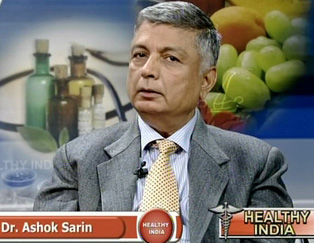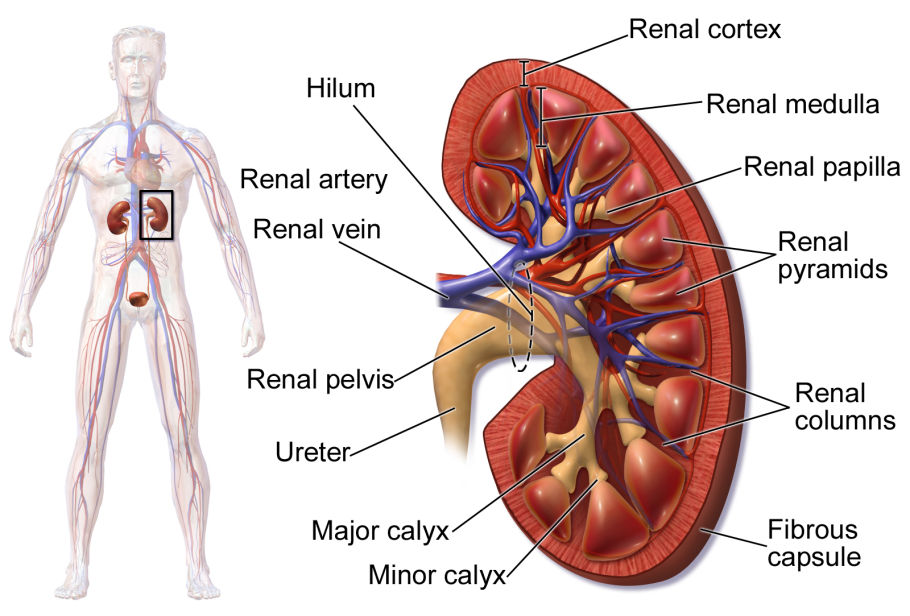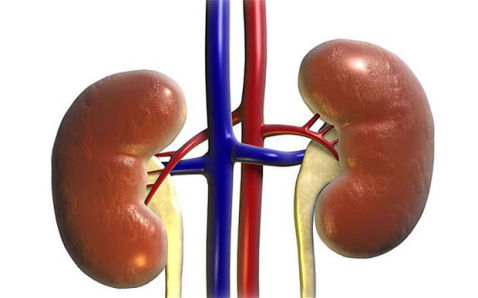
DR. ASHOK SARIN is Specialist in Kidney Diseases, Dialysis and Transplantation, Indraprastha Apollo Hospital, Sarita Vihar, New Delhi
Post MD : Trained at the All India Institute of Medical Sciences, New Delhi.

DR. ASHOK SARIN is Specialist in Kidney Diseases, Dialysis and Transplantation, Indraprastha Apollo Hospital, Sarita Vihar, New Delhi
Post MD : Trained at the All India Institute of Medical Sciences, New Delhi.
The following will help answer questions you may have about kidney transplants.
Q. What is a kidney transplant?
Ans. A kidney transplant is an operation performed by a transplant surgeon in which a healthy kidney from another person is placed into your body. Normally the non-working kidneys remain. A kidney transplant is the treatment option which is most like normal kidney function.
The new kidney performs the functions of your own non-working kidneys. Because the time spent waiting for a transplant may be lengthy, dialysis is usually required while you are waiting for your transplant.
Q. Where does a donor kidney come from?
Ans. A donor kidney may come from any of these sources:
• Living related donors: A member of your family can donate one of their kidneys if your tissue and their tissue match. Family members who are related by birth are the most likely to have matching tissue.
• Cadaver organs: A cadaver donor is a person who has recently died (usually accidentally.) These people have indicated that they would like to donate their organs when they die.
• In most instances, donors must be adults, age 18 or older.
Q. How will the kidney transplant affect my lifestyle?
Ans. The transplanted kidney works 24 hours a day, doing the work of normal kidneys. This often gives the person who has the new kidney more energy than he or she had while on dialysis. Also, a working kidney keeps you healthier overall. Once you have had a kidney transplant, you can resume a fairly normal lifestyle. The kidney will react to chemical and fluid changes in the body immediately. Medications will be required on a strict schedule for the rest of your life.
Q. Can I travel?
Ans. Transplant patients are free to travel as long as they follow treatment guidelines. Patients should always make sure they have enough medication with them, and should always make sure to take their doctor's phone number with them.
Q. Will I be able to keep working and/or go to school?
Ans. Once you have received a kidney transplant and have recovered completely from the surgery, you may return to work or school.
Q. My doctor said there are medications to take after the transplant. What do they do?
Ans. As a transplant patient, you will need to take immunosuppressive medications to stop your body from rejecting the donor kidney. These medications protect the kidney from attack by your immune system. These oral medications must be taken daily for as long as you have the transplanted kidney.
Immunosuppressive medications lower your ability to fight off illness. To stay healthy, you should stay away from people who have contagious conditions such as colds, flu, or chicken pox. After you go home from the hospital, it is important that you take the correct dose of medicine, and that you visit your doctor on a regular basis. Your doctor will then be able to routinely check your kidney function and adjust your medicine as needed.
Q. What do I do to take care of my kidney transplant?
Ans. To keep a transplanted kidney healthy, you need to take care of it. Following treatment guidelines are key to keeping healthy. You will need to:
• Take your immunosuppressive medicine as directed by your doctor, for as long as you have the transplanted kidney
• Visit your doctor as scheduled
• Follow your doctor's guidelines
• Control your diet
• Keep active
• Watch for and report any problems
• Once you have your transplanted kidney, you will continue to visit your doctor on a regular basis.
• Clinic visits are more frequent for the first 3 months. Your doctor will check your kidney function and adjust your immunosuppressive medications.
It is up to you to take your medication for as long as you have the transplant. It is too easy to forget the transplant exists and to forget to take your medication.

Kidney Anatomy

Left & Right Kidneys